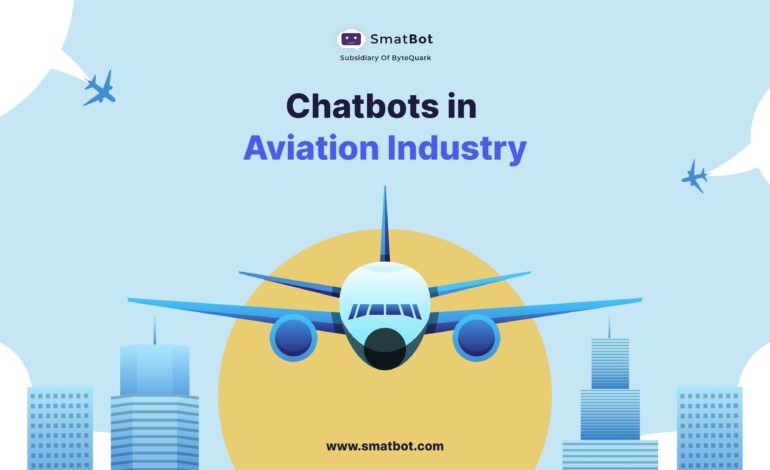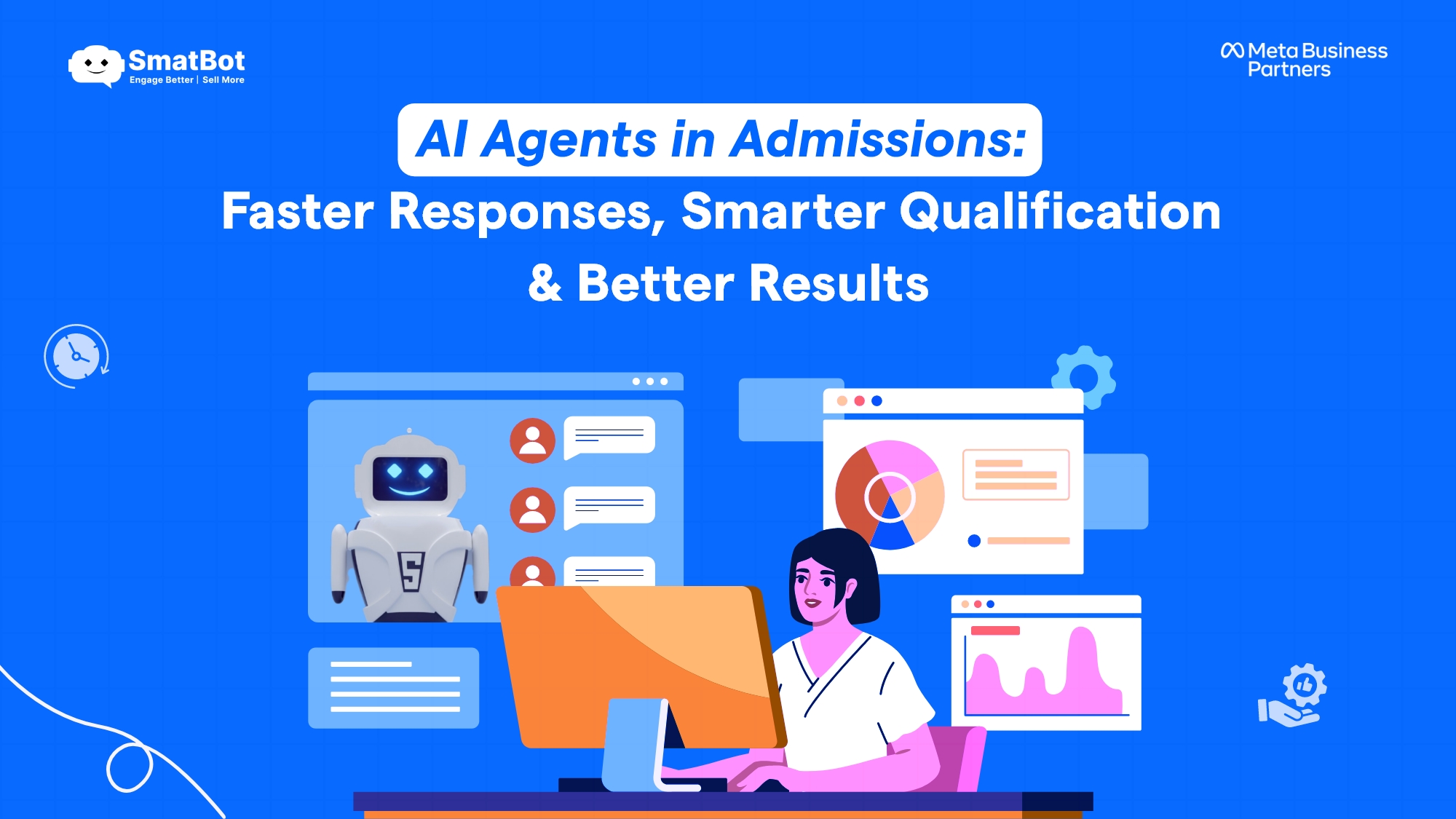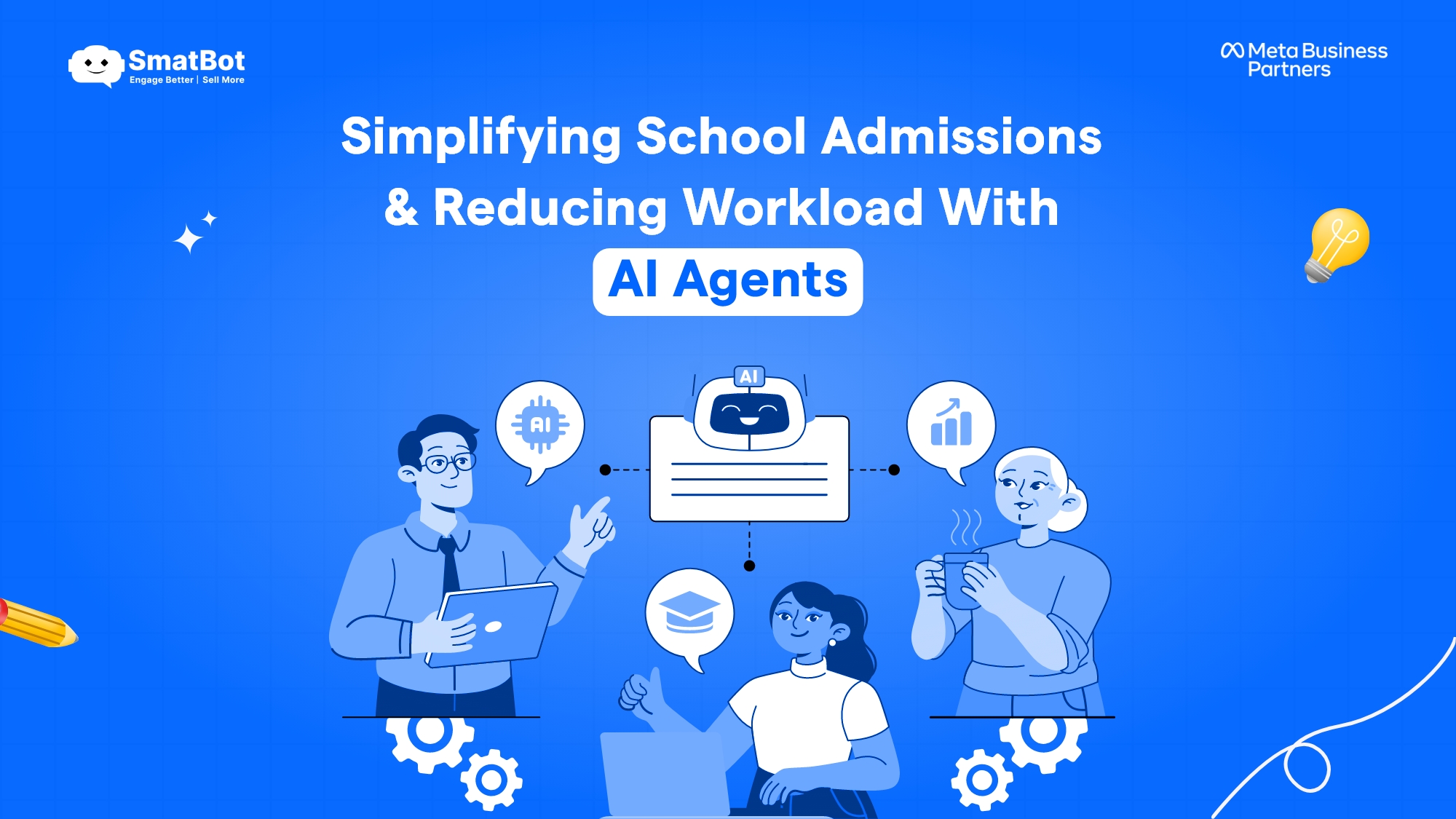Chatbots in Aviation Industry

Benefits of Airline Chatbots for Customers:
Chatbots in Aviation Industry offer a variety of benefits to customers, enhancing the overall travel experience in numerous ways:
Below I am sharing the top benefits of airline chatbots for customers:
- Quick and Effective Responses
Customers feel disappointed when they go through the lengthy process of back-and-forth email threads or the hours spent on the phone call. With the help of chatbots in the Aviation Industry, the need for these time-consuming processes has been removed.
Airline chatbots allow customers to get the answers to their queries in a couple of seconds. Moreover, these chatbots come with a simple, clear and user-friendly interface. In fact, as per Salesforce, 69% of customers prefer to use these chatbots because they provide quick and effective responses.
- Effective Assistance and Real-Time Updates
In the fast-paced world of airlines, every second counts. That’s why chatbots are becoming essential tools. They can analyze data related to services, flights and other policies. This way they can provide real-time updates to keep every customer informed and ensure they don’t miss their flights.
These chatbots can handle tasks like:
- Delivering information about flight schedules.
- Providing updates on gate changes (if any).
According to Salesforce, 58% of customers say that chatbots have revolutionized their expectations of companies.
- Increased Customers Satisfaction
Travellers like to interact with airline chatbots because they are seamless and shorten the waiting time. A recent study showed 69% of users were satisfied with the last conversation with the chatbot. Additionally, chatbots help airline companies decrease inconvenience levels with enhanced customer service. The best thing about these chatbots is they can perform multiple tasks simultaneously.
While chatting with customers, these chatbots will store their relevant information. In the following step, they analyze this data and quickly register any complaints.
Benefits of Chatbots for Airlines:
Indeed, chatbots in the aviation industry are highly beneficial for customers and they also offer advantages for airline companies. Below is a list of the top benefits of chatbots for airlines:
- Save Cost
Chatbots are gaining popularity in the airline industry due to their ability to reduce operational costs. Resources are not wasted as these chatbots decrease resolution time from minutes to seconds. The cost reduction ensures a higher return on investment as the customers are pleased with the results.
Moreover, the cost of the customer service department is reduced because the company does not need to hire more employees. Furthermore, airline companies can reserve the human capital for supervising and regulating AI use. Not only this, but these chatbots can also save a lot of money by automating repetitive tasks. According to the stats, chatbots could help decrease the $1.3 trillion spent annually by businesses to address customer requests by up to 30%.
- Offer Data Insight
Research suggests chatbots can achieve a remarkable 73% customer satisfaction through data insights. Airline chatbots collect valuable information on user’s behaviour, preferences and concerns while interacting with them. These insights empower companies to make data-driven decisions that improve overall service and develop targeted marketing strategies. By identifying emerging trends and utilizing customer feedback, companies can adjust their offerings to better meet customer demands.
- Time-Saving
According to the stat, 87% of users would interact with a travel chatbot if they could save their time and money. The airline chatbot is working hard to meet this demand of users who want to save time and money. It not only saves time for users but also for the airline company. These chatbots communicate with customers via an application, offering faster and more reliable service compared to human staff.
Other than this, tasks that used to take hours of phone calls with human agents can now be automated instantly using an AI chatbot like SmatBot. This allows for managing more inquiries and broadening the customer service department’s reach. This efficiency also reduces the need for extensive employee training, further contributing to time savings.
Use Cases of Airline Chatbots
Chatbots in the aviation industry are well known for resolving passengers’ queries quickly. Apart from solving the queries, these chatbots have the ability to handle several other tasks which I am going to share in this section.
- Automate Flight Search And Booking
Simplifying or speeding up the booking process and flight search is the most important use case of an airline chatbot. Instead of searching through uncountable flight options, a customer can simply begin a conversation with an airline chatbot to book their tickets and find the right flight that suits their needs.
Chatbots have the potential to automate the flight search and booking procedure. Furthermore, customers can ask chatbots to locate available flights, compare prices and complete the booking process. They can then reserve and pay for their tickets directly within the chat. This makes the process quick and easy, taking just a few minutes to complete.
- Flight Update Notification
Chatbots can send automated reminders and update notifications to users about their flights or journeys. This feature of chatbots provides a more conversational and direct channel compared to traditional emails, which can easily get lost among other messages in the inbox.
- Remote Check-Ins
Research demonstrates that most passengers prefer remote check-ins over in-person check-ins. According to a Statista report, 27% of passengers stand in a queue at the airport’s dedicated desk, while 50% prefer checking in online from the comfort of their homes.
Checking in through virtual assistants takes less effort than other modes of check-ins. Once you start a conversation with airline chatbots, they will generate a boarding pass with a QR code. This reduces printing, labour costs and waiting times. Thus, these chatbots can be beneficial for both customers and airline companies.
- Baggage Tracking And Claims
The baggage handling task is critical for airline companies. Passengers often face problems with lost baggage which is a common issue that requires urgent customer support. This is where an airline chatbot can help. They can improve baggage tracking systems, making it easier for passengers to track their luggage.
Chatbots can give passengers access to real-time insight into baggage location and help them file a baggage claim without hopping on a call with airline agents. Additionally, these chatbots can collect customer feedback and complaints post-flight offboarding.
- Targeted Personalized Offers
Chatbots can provide personalized offers to passengers based on their past travel history and preferences. These offers include discounted flights, affordable hotel rates and more. This personalized approach ensures that you get offers that resonate with your interests.
- Handle Payment Process
When you have booked your flight and want to make payment for additional services such as excess baggage fees, you have to navigate through different web pages. But this is not the case with airline chatbots. You can simply interact with the chatbot to request additional services like excess baggage and they’ll guide you through the entire hassle-free payment process.
Chatbots in Aviation Industry Examples
- Air India: Air India is the first Indian airline company to employ an AI chatbot named Maharaja. Maharaja can handle queries in 4 different languages including Hindi. The AI chatbot is programmed to answer user queries across 1300 topics. Maharaja can even ask users direct questions to determine if they require further assistance.
- IndiGo: IndiGo recently launched a cutting-edge AI chatbot called 6Eskai which is powered by GPT-4 technology. They have developed this chatbot in-house in collaboration with Microsoft. 6Eskai supports 10 different languages and offers a user-friendly platform for ticket booking.
It has reduced the customer service agent workload by 75% and simplifies the booking process with its human-like conversations. With 1.7 trillion parameters, 6Eskai can handle various tasks like trip planning, ticket bookings, web check-ins, applying discounts, seat selection, FAQs and more. This is a big step forward in using AI bots to improve the customers’ experience in the aviation industry.
Final words on Aviation Chatbot
Chatbots in the aviation industry are full of advantages for both airlines and customers. After exploring use cases and examples of chatbots, it is clear that AI chatbots are a boon for airlines. They streamline operations, deliver tailored travel experiences and improve overall efficiency. As technology advances, AI-powered chatbots will play a bigger role in shaping aviation’s future.
Now, if you are ready to shape your aviation future and improve customer satisfaction through personalized travel experiences, SmatBot is worth checking out. SmatBot provides advanced chatbot solutions for the aviation industry, offering cutting-edge AI services with powerful integration, scalability, multilingual support, omnichannel capability, security and flexibility.
So, what are you waiting for? Book your demo with us today.




